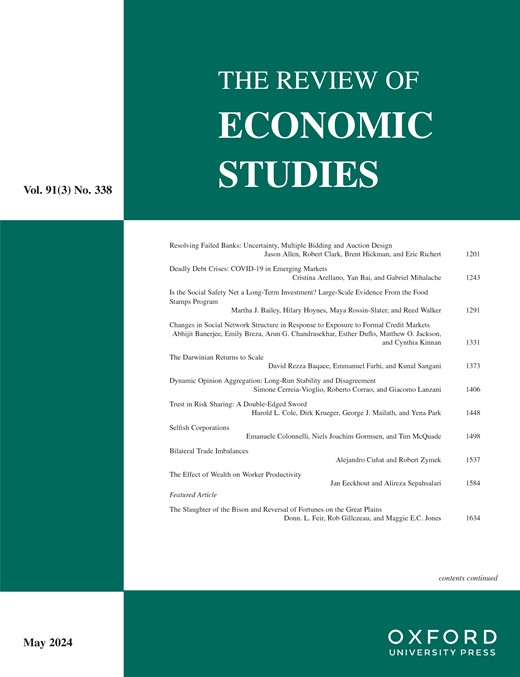房价动态、最优LTV限制与流动性陷阱
IF 6.4
1区 经济学
Q1 ECONOMICS
引用次数: 0
摘要
摘要本文研究了具有名义刚性和金融摩擦模型的宏观审慎工具LTV限额的优化设计及其对货币政策的影响。该分析既考虑了名义利率的有效下限,也考虑了LTV上限刺激信贷需求能力的上限。基于福利的损失函数具有宏观审慎政策增强风险分担的作用。最优LTV限制是强烈逆周期的。在房价盛衰时期,积极使用LTV限制可以缓解债务去杠杆化的动力,防止经济陷入流动性陷阱。本文章由计算机程序翻译,如有差异,请以英文原文为准。
House Price Dynamics, Optimal LTV Limits and the Liquidity Trap
Abstract This paper studies the optimal design of a macro-prudential instrument, a loan-to-value (LTV) limit, and its implications for monetary policy in a model with nominal rigidities and financial frictions. The analysis accounts for both an effective lower bound on the nominal interest rate and an upper bound on the ability of LTV limits to stimulate credit demand. The welfare-based loss function features a role for macro-prudential policy to enhance risk-sharing. Optimal LTV limits are strongly countercyclical. In a house price boom-bust episode, the active use of LTV limits alleviates debt-deleveraging dynamics and prevents the economy from falling into a liquidity trap.
求助全文
通过发布文献求助,成功后即可免费获取论文全文。
去求助
来源期刊

Review of Economic Studies
ECONOMICS-
CiteScore
10.40
自引率
3.40%
发文量
75
期刊介绍:
Founded in 1933 by a group of young British and American economists, The Review of Economic Studies aims to encourage research in theoretical and applied economics, especially by young economists. Today it is widely recognised as one of the core top-five economics journals. The Review is essential reading for economists and has a reputation for publishing path-breaking papers in theoretical and applied economics. The Review is committed to continuing to publish strong papers in all areas of economics. The Editors aim to provide an efficient and high-quality review process to the Review''s authors. Where articles are sent out for full review, authors receive careful reports and feedback. Since 1989 The Review has held annual May Meetings to offer young students in economics and finance the chance to present their research to audiences in Europe.
 求助内容:
求助内容: 应助结果提醒方式:
应助结果提醒方式:


